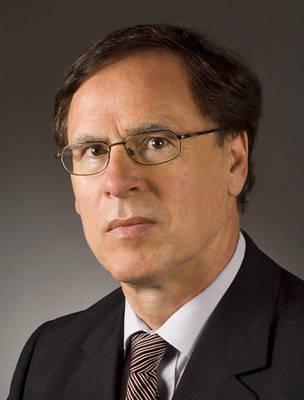
Brigitte Hamann was a German-Austrian author and historian based in Vienna.

Julius Binder was a German philosopher of law. He is principally known as an opponent of legal positivism, and for having remained as an active scholar during the 1930s in Nazi Germany who did not speak out against the prevailing government of that time.

Winfried Brugger was Professor of Public Law, Philosophy of Law and Theory of State at Heidelberg University.
The International Association for the Philosophy of Law and Social Philosophy (IVR) is a learned society for science and was founded in 1909 as the "Internationale Vereinigung für Rechts- und Wirtschaftsphilosophie". It was renamed to "Internationale Vereinigung für Rechts- und Sozialphilosophie" in 1933. The IVR is the world's central academic organization for the study and advancement of legal and social philosophy.
The Radbruch formula is a legal theory which was first formulated in a 1946 essay by the German law professor and politician Gustav Radbruch. According to the theory, a judge who encounters a conflict between a statute and what he perceives as just, has to decide against applying the statute if—and only if—the legal concept behind the statute in question seems either "unbearably unjust" or in "deliberate disregard" of human equality before the law.

Eric Andreas Hilgendorf is a German professor of law and legal philosopher. He holds the Chair in Criminal Law, Criminal Procedure, Legal Theory, and Information and Computer Science Law at the University of Würzburg. Hilgendorf is one of Germany's most influential scholars in the field of criminal law, with special focuses on IT law as well as on artificial intelligence and law.

Christian Michelides is an Austrian psychotherapist. He is the director of Lighthouse Wien.
Hannelore Eva Kreisky, née Zgraja is an Austrian political scientist and jurist.
The Gabriele Possanner State Prize is a state award for feminist research in Austria, named for Gabriele Possanner. It was established in 1997, and is awarded every second year by the Federal Ministry of Science and Research.

Lisa Eckhart is an Austrian poetry slammer and cabaret artist.

Karl Engisch was a German jurist and a Philosopher of Law. He was described by Hans Joachim Hirsch as one of the "outstanding theorists of criminal justice of the [twentieth] century".
Günther Jakobs, is a German jurist, specializing in criminal law, criminal procedural law and philosophy of law.

Alexander Somek is an Austrian legal scholar.

Margot Pilz is an Austrian visual artist and a pioneer of conceptual and digital art in Austria. She was one of the first Austrian artists to combine computers and photography. Her works reflect the avant-garde culture of the 1960s and 1970s in their experimental techniques and performative aspects. Her work received renewed attention in the 2010s.
Edith Saurer was an Austrian historian, university professor at the University of Vienna, scientific author, and publisher. She is regarded as a central cofounder and advocate of feminist historiography in Austria. She received the Käthe Leichter Prize, Gabriele Possanner State Prize, and the Golden Medal for her services to the State of Vienna.
Ina Wagner is an Austrian physicist, computer scientist and social scientist. She is an emeritus professor of computer science at TU Wien (Vienna), where she was active from 1987 until 2011.
Hasso Hofmann was a German philosopher and jurist.

Stephan Kirste is a German legal scholar and university professor of legal and social philosophy at the Faculty of Law of the University of Salzburg (Austria). Since 2020, Kirste is also an associate professor at the Pontifícia Universidade Católica do Rio Grande do Sul (Brazil) in the graduate program.

Elfriede Hammerl is an Austrian journalist and writer from Gumpoldskirchen, near Vienna.
Daniela Hammer-Tugendhat is an Austrian art historian. She was born in Caracas, Venezuela to a family of wealthy, Jewish textile manufacturers from Brno, who had fled the Nazi occupation of Czechoslovakia during World War II. When the war ended, the family unsuccessfully attempted to reclaim their property in Czechoslovakia and settled in St. Gallen, Switzerland in 1950. Influenced by her mother's love of art, Hammer-Tugendhat studied art history and archeology at the University of Bern and the University of Vienna. After completing her PhD in 1975, she taught at the University of Applied Arts Vienna until her retirement in 2012.











